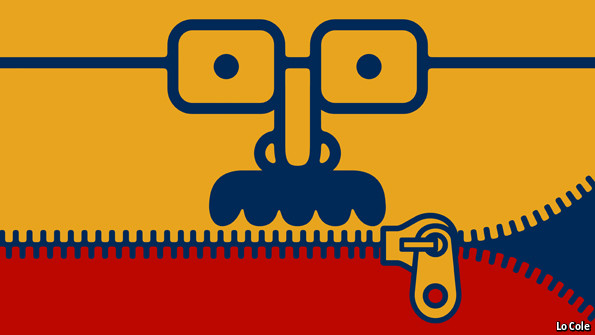Bello
Venezuela’s progressive conscience
A crude effort to silence a newspaper editor sums up the country’s plight

INTERVIEWING Teodoro Petkoff, Bello has found, is a disconcerting experience. He responds to questions with point-blank answers, delivered faster than the pen can travel, from behind a bristling moustache in the clipped Spanish of the Caribbean rim. Within five minutes, this interviewer realises with mild panic, he has exhausted his mental list of questions. Mr Petkoff then suddenly shifts to a more expansive gear, and over the next hour or so provides as penetrating an analysis of his country as can be found, laced with insights gleaned from both sides of the polarised, partisan divide that separates supporters and opponents of the late Hugo Chávez.
The telegraphic summarising is the habit of a man who as a guerrilla leader knew that time might be short. As a student Mr Petkoff joined the Communist Party; intoxicated by the Cuban revolution, he led an insurgency against a democratic government; he twice escaped from prison, once by abseiling from the seventh floor of a hospital block. Having concluded that the armed struggle was “a very serious political mistake”, he founded a democratic left-wing party, stood for president in 1983 and 1988 and ended up serving as planning minister in a centrist administration that tried to salvage Venezuela’s economy from the wreckage of low oil prices in the 1990's.
A progressive of unquestioned personal integrity, Mr Petkoff is a national treasure. But now at the age of 82 he faces a punitive lawsuit brought by Diosdado Cabello, the thuggish army captain who as head of the National Assembly ranks second in the government only to President Nicolás Maduro, Chávez’s heir.
After leaving party politics, Mr Petkoff founded Tal Cual (“Like it is”), a fiercely independent newspaper. In January he published an opinion article by Carlos Genatios, once Chávez’s science minister, which criticised Venezuela’s astronomical murder rate and quoted Mr Cabello as saying: “Those who dislike the insecurity should leave the country.” Mr Cabello sued Mr Genatios, Tal Cual and Mr Petkoff for “aggravated defamation”; a pliant judge accepted the suit. The defendants are barred from leaving the country and face up to four years in jail.
Mr Cabello denies having said the words attributed to him, which Mr Genatios took from a strapline on the state television channel. If Mr Cabello is in the right, he should be suing state TV; in any event, an apology and retraction would suffice. The disproportionate remedy he seeks is a crude attempt to silence Mr Petkoff and Tal Cual. The government has already browbeaten or taken over all opposition-leaning television stations, most radio stations and several newspapers.
Mr Petkoff is an awkward critic for the government because he has never been a conservative. He praised Chávez for having placed poverty and the “social question” at the top of the agenda. But he long worried that Chávez’s totalitarian drift and polarising hate-speech could lead to an escalation of violence. In the past three months this has come about, with daily opposition protests and their repression—partly by armed chavistas—leaving an estimated 41 dead.
Mr Petkoff has always argued that the democratic political culture laid down in Venezuela in 1958-98 would save the country from disaster, allowing a peaceful handover of power when the voters tire of chavismo. That belief is now being tested. Mr Maduro has been forced by outside pressure to accept a dialogue with the opposition, “facilitated” by Brazil, Colombia, Ecuador and the pope. The refusal of more radical opposition leaders to take part seemed vindicated by the government’s refusal to free political prisoners. Moderates must hope that the dialogue at least achieves that much, as well as new appointments to the supreme court and the electoral authority, and an end to harassment of the opposition. That would allow Venezuela to settle its differences constitutionally, via a recall referendum which can be held in 2016.
This is some hope. Mr Cabello, who has faced corruption claims (which he denies), runs the Assembly by dictatorial whim, illegally expelling opposition representatives and denying others speaking rights. Some think he will block any attempt by Mr Maduro to reach agreement with the opposition. Mr Petkoff, the exemplary democrat, must defend himself in a compromised court against Kafkaesque charges. That sums up why real dialogue in Venezuela is so urgently needed—and why it will take much firmer outside pressure to succeed. And it shows why those on the left around the world who still defend Venezuela’s government should hang their heads in shame.
- Recommend17

No comments:
Post a Comment
Please leave a comment-- or suggestions, particularly of topics and places you'd like to see covered